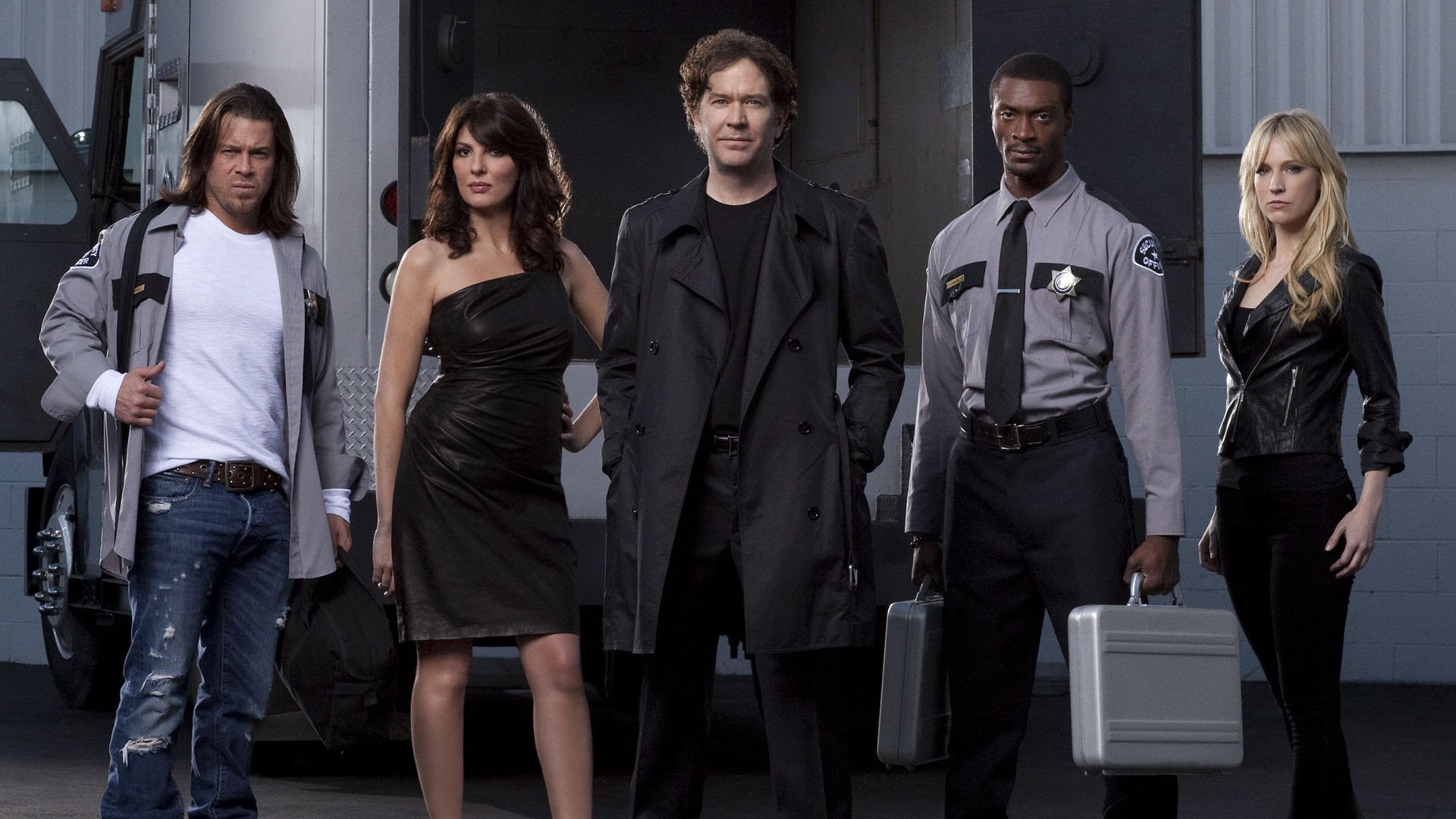
The smarter way to stay on top of the streaming and OTT industry. Sign up below.
You are now subscribed
Your newsletter sign-up was successful
It looks like the original content glut is going to get even gluttier as the various FASTs (free ad-supported streaming TV services) jump on the bandwagon.

Amazon’s IMDb TV was first out of the gate in October 2020, when it announced that it would be rebooting the 2008 crime drama Leverage (which I never heard of). That was followed by a number of other announcements of series reboots including Judge Judy (heard of her), and the announcement last month that 98-year-old industry legend Norman Lear (you’d better have heard of him) would be producing a half-hour sitcom and an hour-long drama for the service. And Titus Welliver will reprise his role as hard-boiled Det. Harry Bosch in a spinoff of the Prime Video original series Bosch for IMDb TV in the coming months.
IMDbTV is in an interesting position among these services, which are also sometimes referred to by the acronym AVODs (ad-supported video-on-demand), because Amazon often sticks IMDbTV results into the mix when people think they’re searching Prime Video, adding a “watch it with ads for free” tag that doesn’t exactly cue most viewers into the fact that they’re watching a service that isn’t Prime. Regardless, it’s a great way for Amazon to show off the power of its ad platform--think of all the data they have about what people actually buy.
It would seem that by introducing original programming to IMDbTV, they can showcase it on both the Fire TV and Prime homepages as a way of increasing viewership, having determined that people aren’t all that bothered by the fact that some Prime shows seem to have advertising. (This is not all that surprising given the way Amazon’s Prime catalog is structured, where most movies and shows are free and some cost just a few dollars to rent. It’s confusing enough that viewers are unlikely to be concerned about a few ad supported shows thrown into the mix.)
Roku was the next to announce originals, which was not all that surprising given that in many ways the Roku Channel goes head to head with IMDbTV.
Roku bought up Quibi’s leftover catalog in December, a move that got the company a decent amount of press given the way Quibi’s become such an easy punch line. The good news there is that Roku can group the short-form series together to make something like a long-ish movie or a two or three episode miniseries, and that given the number of talented people Quibi had signed up, there are likely some gems in there along with shows about blow-up dolls. (Not making that one up.)
The bad news is that there is all sorts of tangly legal language around who owns the series (Quibi didn’t) and for how long and what happens if they want to do a second season.
The smarter way to stay on top of the streaming and OTT industry. Sign up below.
Still, it was a smart move for Roku at a time when the network-owned FASTs like Pluto and Tubi were starting to differentiate themselves by gaining access to their parent companies’ back catalogs, something Roku could not lay claim to.
(Though they did, it seems, demand that networks setting up shop for their apps on Roku pay them tribute by granting them rights to a couple of library series. Thus Xena: Warrior Princess is now on the Roku Channel, courtesy of NBCU and Peacock.)
Roku has since announced even more originals are on the way, starting with a crime drama called Cypher, from Aroma, an independent Cairo-based studio. The show premiered on South African Netflix this summer but will have its exclusive U.S. release on Roku starting March 19.
This is likely to be the first of many originals on Roku and it will be interesting to see if they continue to go the international route to find what they consider hidden gems or if they’ll take a different tack. Notably, Roku placed a LinkedIn job posting last month seeking a “lead production attorney,” who will work on the company’s “expanding slate of original content.”
The next FAST out of the originals gate, Tubi, is Fox’s sole investment in the streaming space, and so it’s no surprise that they are looking to produce originals as well.
Last week, Fox CFO Steve Tomsic said the conglomerate would take a “cost-effective look” at original shows.
CEO Lachlan Murdoch has promised that Tubi will be a big part of Fox’s plans moving forward, and according to a report in Bloomberg, the service is looking at both TV shows and movies, with the potential to spend as much as $4 million/episode on the former, which seems at odds with Tomsic’s earlier statement.
The likelihood here is that Fox has realized that it needs to have a bigger presence on streaming in order to compete with the other networks and that the shift to streaming is happening faster than they’d originally anticipated, thanks in no small part to the pandemic.
Notably, Tubi’s declared entry into the originals business comes two years after founder and CEO Farhad Massoudi told Next TV that the model “doesn’t make sense” for AVOD platforms.
Series with $4 million/episode budgets can easily compete with anything Netflix, Hulu, Disney Plus and the other subscription services have on offer, and so it’s easy enough to see Tubi rolling out a subscription version of the app to house the higher priced programming--if the value was there, there’s no reason to think consumers wouldn’t pay for it.
On the other hand, they may decide that the ad revenue they can get from such premium programming more than makes up for an absence of subscription revenue and set themselves apart as the “Tiffany FAST.”
Given that Tubi’s original programming strategy appears to be in the very early stages of development, however, it’s too soon to make a clear prediction on where they’ll end up.
The first FAST to be bought by a network group, ViacomCBS’s Pluto TV, has been dipping its toe into the original content game, showing the previously unaired fourth season of the series Bajillion Dollar Propertie$, which was originally created for NBCU’s Seeso. (To date, there has been no announcement of a fifth, Pluto-only season.)
Pluto TV is also showing episodes of original series from CBS’ linear prime time lineup like Clarice and The Equalizer, which seems like a much smarter move as it helps create synergy between the various moving pieces of ViacomCBS’s streaming and linear offerings. VCBS could also tease episodes of its new Paramount Plus originals on Pluto, getting viewers hooked as a way to encourage subscriptions.
The final group of FASTs are the services run by the smart TV OEMs: LG, Samsung and Vizio. All three have sizable libraries, in-house data and analytics services and their own ad sales teams. All they seem to be missing is original programming.
What makes sense here is something the other FASTs have not gravitated to: non-fiction, reality and game show TV, genres with low production costs and with styles that blend in well with the library content available on the FASTs.
Game shows and reality shows also present the opportunity to create live TV, getting viewers in the habit of tuning in at a specific time every evening (or even once a week) which creates an excellent ad environment, with millions of people all watching the same ads at the same time.
All in all, the launch of original content indicates that the FASTs have reached a new stage of growth, one that would seem to confirm that they are not just a fad but a permanent piece of the new TV landscape. It will be fascinating to see how they develop in the years to come.
Alan Wolk is the co-founder and lead analyst for media consultancy TV[R]EV

